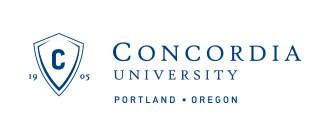If you'd like to continue your professional development and mathematics education, you can do so in a program such as Concordia University Portland's online Master of Education (M.Ed.) in Curriculum and Instruction. Choose the Mathematics concentration for specialized educational training. Read on for program details.
<h2 id="section---FrequentlyAskedQuestions">Frequently Asked Questions</h2>
<h3 id="section---WhatKindOfProgramIsIt">What Kind of Program Is It?</h3>
<p>Concordia University Portland's Master of Education in Curriculum and Instruction in Mathematics online program was designed for mathematics-oriented instructors who want to increase their knowledge in order to teach more effectively. The program emphasizes the teaching of math subjects according to the standards of the National Council of Teachers of Mathematics (NCTM). The curriculum is designed to prepare teachers of kindergarten through community college. You'll have opportunities to become proficient in the teaching of topics such as algebra and geometry. Furthermore, you'll be able to gain knowledge in areas such as mathematics research, curriculum development and planning, administration, and assessment.
</p>
<h3 id="section---WhatAreThePrerequisites">What Are the Prerequisites?</h3>
<p>This is a program for education professionals who already hold degrees and teaching licenses and who want to provide children with a comprehensive mathematics education. You might choose this course of study if you'd like to advance your career or switch gears to become a mathematics teacher. All applicants to Concordia University Portland programs must have earned a high school diploma or equivalent. Students entering must have a GPA of at least 2.8. In addition, applicants must submit two recommendation letters, a letter of intent, and a resume.
</p>
<h3 id="section---WhatAreTheCourseRequirements">What Are the Course Requirements?</h3>
<p>The program offers education in areas such as foundational and transformative mathematics. You must complete five professional core courses and five concentration courses. Your courses are listed below.
</p>
<p><u>Professional Core Requirements</u>
</p>
<p />
<table border="1"><tr><th>Course Code </th><th>Course Name</th></tr>
<tr><td>EDGR 502 </td><td> Developing Character through the Curriculum</td></tr>
<tr><td>EDGR 535 </td><td> Theories of Teaching and Learning</td></tr>
<tr><td>EDGR 595 </td><td> Community of Learners</td></tr>
<tr><td>EDGR 601 </td><td> Educational Research</td></tr>
<tr><td>EDGR 602 </td><td> Contemporary Educational Thought</td></tr>
</table><p><u>Personalized Mathematics Strand</u>
</p>
<p />
<table border="1"><tr><th>Course Code </th><th>Course Name</th></tr>
<tr><td>EDCI 526 </td><td> Foundational Mathematics Concepts</td></tr>
<tr><td>EDCI 536 </td><td> Learning & Teaching Measurement & Geometry</td></tr>
<tr><td>EDCI 546 </td><td> Learning & Teaching Algebraic Concepts, Data Analysis & Probability</td></tr>
<tr><td>EDCI 556 </td><td> Transformative Mathematics in the Differentiated Classroom</td></tr>
<tr><td>EDGR 698 </td><td> Action Research - Capstone</td></tr>
</table><h3 id="section---WhatCouldIDoAfterGraduation">What Could I Do After Graduation?</h3>
<h4 id="section---CareerOpportunities">Career Opportunities</h4>
<p>Because many schools prefer or require advanced degrees, you may pursue more job opportunities upon completing a master's-level program. After graduation, you could seek positions such as:
</p>
<ul><li>Elementary school mathematics instructor
</li><li>Middle school mathematics teacher
</li><li>High school mathematics teacher
</li><li>Higher ed (community college) teacher
</li><li>Secondary school mathematics teacher
</li><li>Instructional coordinator</li></ul>


.svg)


